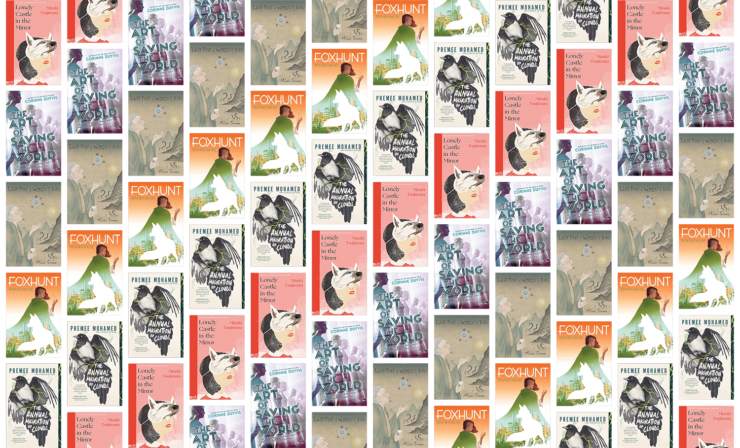Speculative fiction readers love series. We can tell this because the majority of speculative fiction books—seventy percent, by some accounts—are part of a series. Indeed, as far back as 1992, when America was still lit by whale oil lamps, famed editor Gardner Dozois complained about the sharp rise in series books. To this day, they dominate the field.
Despite the overwhelming popularity of series, there’s a lot to be said for works that contain within themselves a complete story…works that do not leave the reader wondering if the author or authors will ever manage to bring their epic tale to a satisfactory conclusion. Take these five recent works for example.
Kagami No Koji by Mizuki Tsujimura; translated as Lonely Castle in the Mirror by Phillip Gabriel (2017, English edition 2020)
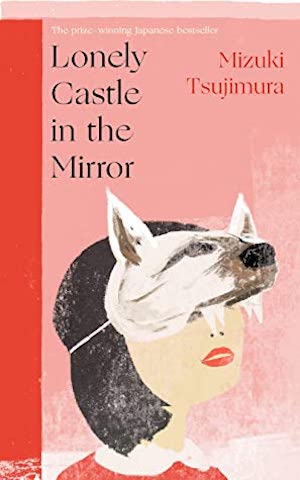
The victim of incessant mass bullying, painfully aware that the authorities prefer to victim blame than to address such issues, Kokoro Anzai deploys a simple but effective countermeasure. Kokoro no longer attends school; she won’t even leave her house. It’s the hikikomori way for Kokoro. Or at least it would be, save for the intervention of the Wolf Queen.
The Wolf Queen’s true identity is unclear. However, she commands enough magic to draw to her castle seven students: Kokoro, Aki, Fuka, Masamune, Rion, Subaru, and Ureshino. The seven are to spend the next few months on a marvelous treasure hunt. The winner will get a wish! The losers will get nothing. And if any of them breaks the rules of the game into which they have been drafted, they will all face dire, collective punishment. Potentially horrific, but as Kokoro discovers, still better than what she had at school.
Last Poet of Wyrld’s End by Melanie Stormm (2020)
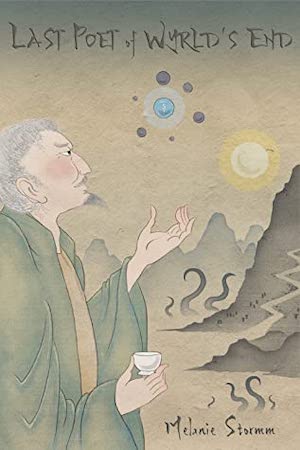
Poet Zhou Liu Yang’s pocket should include a tobacco pouch, an ink bottle, a treasured brass pen gifted to the poet by his estranged daughter, the coin with which he intended to purchase morning tea, and most importantly, Yang’s treasure, a blue marble with marvelous properties. What his pocket actually contains is nothing, because his pocket has a large hole.
Wyrd’s End may be a small town. Still, lots of room for a blue marble to fall unnoticed. Despite its comparatively tiny population, the community is rich with factions. It is a place in which schemes and plots abound. Not the sort of place a humble poet would want to have to search for a small marble. Nevertheless, this is the task Yang must embrace, if he ever wants to see his tobacco pouch, ink bottle, brass pen, coin, and precious marble again.
The Art of Saving the World by Corinne Duyvis (2020)
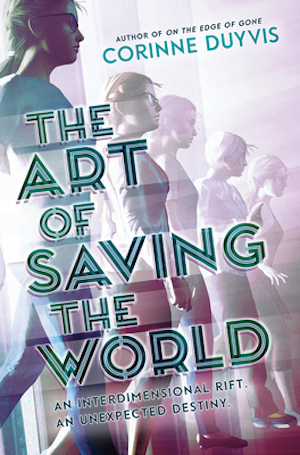
In another life, Hazel Stanczak might have obsessed about how her well-meaning but conservative parents will react should Hazel ever mention her attraction to Marybeth McKellan. Thanks to the interdimensional rift that appeared in the Stanczak backyard, Hazel’s as yet unexplained connection to the rift, and the Mysterious Government Agency that descended on the family farm after the rift manifested, this concern about sexuality and acceptance is just one of many issues about which Hazel is extremely stressed.
Because the rift goes haywire when Hazel gets too far from it, she has until now been forced to stay close to home. This changes on her sixteenth birthday—but not for the better. Hazel is her Earth’s Chosen One and if she is not inclined to act as those who Chose her would have her act, they are happily to provide motivation. The rift runs amok. Versions of Hazel as she might have been begin appearing. Monster swarms rampage across the US. Hazel’s world is in danger and Hazel herself may be doomed…all for a purpose as trivial as it is infuriating: entertainment.
The Annual Migration of Clouds by Premee Mohamed (2021)
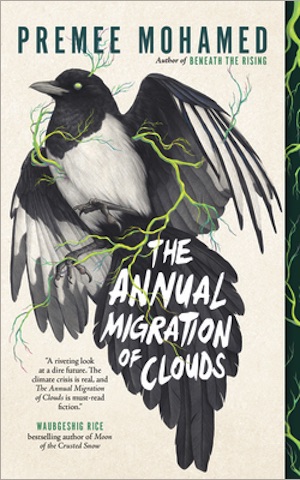
A pessimist might say that ninety-nine out of a hundred people died in the calamities that brought civilization to its knees. An optimist would point out that at least there were survivors. A pessimist might dwell on the lost infrastructure and the now semi-mythical technology that vanished from most of the Earth. An optimist would rejoice that at least enough remains for a handful of people to scrape a bare living from inhospitable Earth. Neither the pessimist nor the optimist would be entirely clear how much of their thought processes are manipulated by Cad, an insidious, manipulative parasitic infection that has entrenched itself within so many survivors.
Howse University is an oasis of lost technology in a dark age. Reid Graham is therefore overjoyed to learn that she has been accepted as a student. However, before she can attend, she must reach distant Howse. This significant challenge is eclipsed by the fact that to journey to Howse, she must leave her mother and her hometown. Her mother does not want to lose her daughter. The town is perpetually short of labour. Which is more important to Reid, personal growth or community loyalty? How much of Reid’s ambition originates from Reid herself and how much is the nudging of the Cad that lurks within Reid?
Foxhunt by Rem Wigmore (2021)
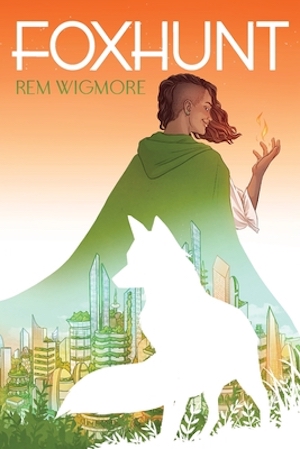
Five centuries ago, the Brink brought humanity and the ecosystems in which it is embedded to the verge of total collapse. Civilization survived, in part because of the rise of institutions whose role it was to encourage planetary responsibility by punishing short-sighted greed. Take the Order of the Vengeful Wild, for example: this autonomous organization of highly trained, technologically enhanced killers stalks and executes ecological villains on the basis of top-quality hearsay.
Nanotech-enhanced wandering entertainer Orfeus is as community-minded as the next person (provided the next person is an oversexed bard with a predilection for other people’s spouses) but Orfeus draws the line at allowing a homicidal vigilante to murder Orfeus on a flimsy pretext. Establishing to her satisfaction that escape from the Order is impossible, Orfeus does the only thing someone in her position can do: she joins it.
***
All of these come with the caveat that of course, nothing prevents the authors from writing sequels. However, each of the stories above functions as a standalone work, delivering all the reader could want, rather than leaving them to wait years or perhaps decades for the next installment.
Originally published February 2022.
In the words of Wikipedia editor TexasAndroid, prolific book reviewer and perennial Darwin Award nominee James Davis Nicoll is of “questionable notability.” His work has appeared in Publishers Weekly and Romantic Times as well as on his own websites, James Nicoll Reviews and the Aurora finalist Young People Read Old SFF (where he is assisted by editor Karen Lofstrom and web person Adrienne L. Travis). He is a four-time finalist for the Best Fan Writer Hugo Award, is eligible to be nominated again this year, and is surprisingly flammable.










